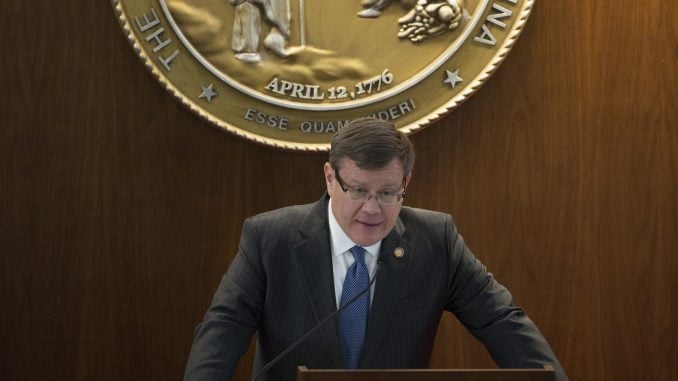
RALEIGH – The two plans passed separately by the N.C. House and Senate will need to be resolved by legislative leadership before sending a final package to Gov. Roy Cooper for approval.
Following yesterday’s Senate vote, the House voted today by a margin of 117-1 to approve its own package of COVID-19 relief. The two sides both believe they can come to agreement, which hinges on the two chambers’ negotiations which begin Thursday afternoon.
Following the House vote, Speaker Tim Moore (R-Cleveland) said the House and Senate appropriations chairs will meet to discuss differences in lieu of a formal conference committee. Moore said that a proposed committee substitute (PCS) will be voted on by each chamber once agreement is reached, which he said would “hopefully” be Thursday evening. This process, Moore said, would allow speedy approval of the final bill sent to Gov. Cooper.
According to federal guidelines, the dedicated $3.5 billion transferred to the state as part of the CARES Act can only be used for COVID-19 related expenses. The funds must be used by December 31, 2020 and cannot be used as a replacement for lost state and local tax revenue.
Senator Harry Brown (R-Onslow), a chief budget writer, came out against spending all of the federal funds. Brown said that federal guidelines may change regarding distribution of the funds specifically using it to fill budget holes.
“In fact, we think that’s likely to happen. When it does, the CARES Act funding will become the most flexible resource we have to avoid cutting critical government services or laying off teachers” said Brown in a press statement. “But if we spend all or most of the CARES Act money now, we won’t have enough left to help fill the multi-billion dollar budget shortfall we expect next fiscal year.”
Brown also said other funding streams in health care and education areas exist for those purposes. He pointed to $396.3 million directly to local educational agencies for educational services to students and to pay for improved remote learning, and $919 million in spending directly to medical providers for COVID-19 treatment expenses.
“It is not prudent to use the CARES Act funding, which may be the most flexible assistance we have, to pay for an area already covered by a different federal funding stream” said Brown.
North Carolina’s share from the largest coronavirus rescue package is more than $3.5 billion. The House package would distribute $1.7 billion, while the amended Senate’s is more than $1.3 billion.



